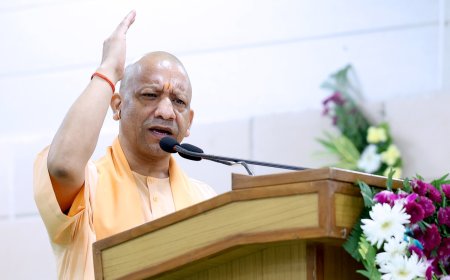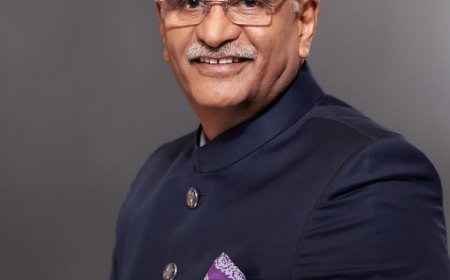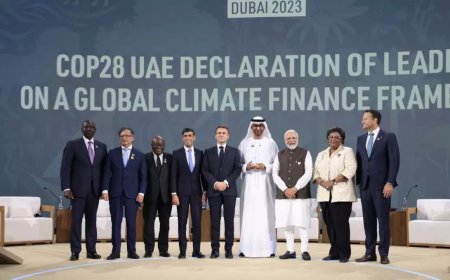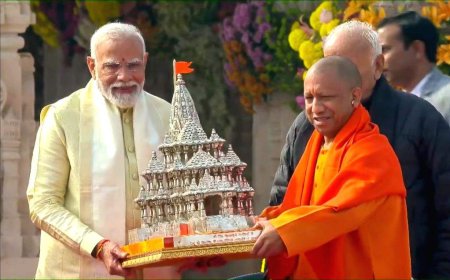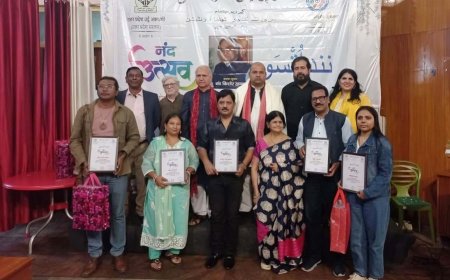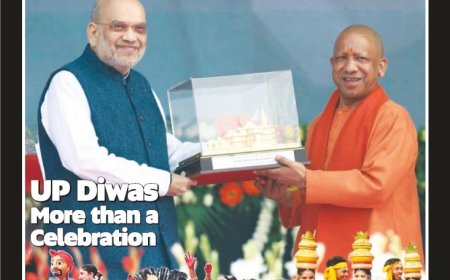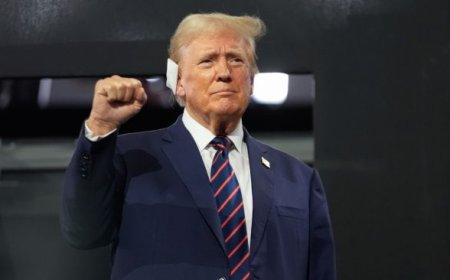Muttaqi in New Delhi: India Breaks the Ice with Taliban
Muttaqi in New Delhi: India Breaks the Ice with Taliban
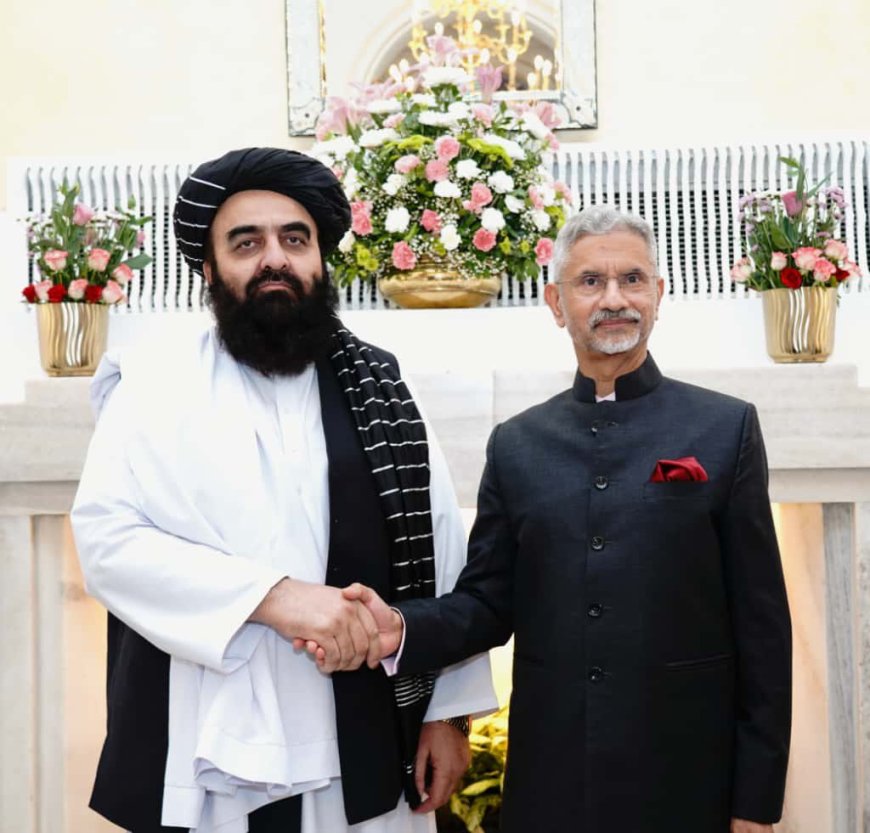
New Delhi: The visit of Mawlawi Amir Khan Muttaqi, the Taliban-appointed Acting Foreign Minister of Afghanistan, to India from October 9 to 15, 2025, marked a pivotal shift in regional diplomacy. This was the highest-level engagement between India and the Taliban since their 2021 return to power, made possible by a temporary waiver of his UN travel ban under Resolution 1988 (2011). Despite heightened regional tensions, India extended a warm welcome, with MEA Joint Secretary Anand Prakash receiving him in New Delhi.
Diplomacy at the Highest Level
Muttaqi’s formal meetings began on October 9 with Indian Foreign Secretary Vikram Misri, setting the stage for deeper dialogue. The core diplomatic moment took place on October 10 at Hyderabad House, where he met External Affairs Minister S. Jaishankar. Their talks focused on trade facilitation, humanitarian aid, consular access, and security cooperation. The most significant outcome was a joint statement in which the Taliban pledged that Afghan soil would not be used against India or any neighboring country. This addressed one of India’s longest-standing fears—cross-border terrorism emanating from Afghan territory with support from Pakistan-based groups. India, in return, reaffirmed its commitment to Afghan development and humanitarian assistance, referencing post-earthquake aid delivered in August 2025 and expanding future support. This signaled a bold policy shift from caution to calibrated cooperation.
Cultural and Symbolic Significance
The visit went beyond formal diplomacy and leveraged cultural symbolism. On October 11, Muttaqi traveled to Darul Uloom Deoband, one of the world's most influential Islamic seminaries, where Deobandi thought originated—a tradition that deeply influenced the Taliban’s ideology. He was honored with a traditional shawl and cap. The event was highly symbolic, underscoring shared religious and scholarly heritage, while showcasing India’s soft power and pluralism. Muttaqi met Afghan prisoners in Indian jails, signaling a desire to normalize consular relations. Trade discussions focused on boosting Afghan exports such as dry fruits and medicinal plants via Indian ports, highlighting mutual economic interests.
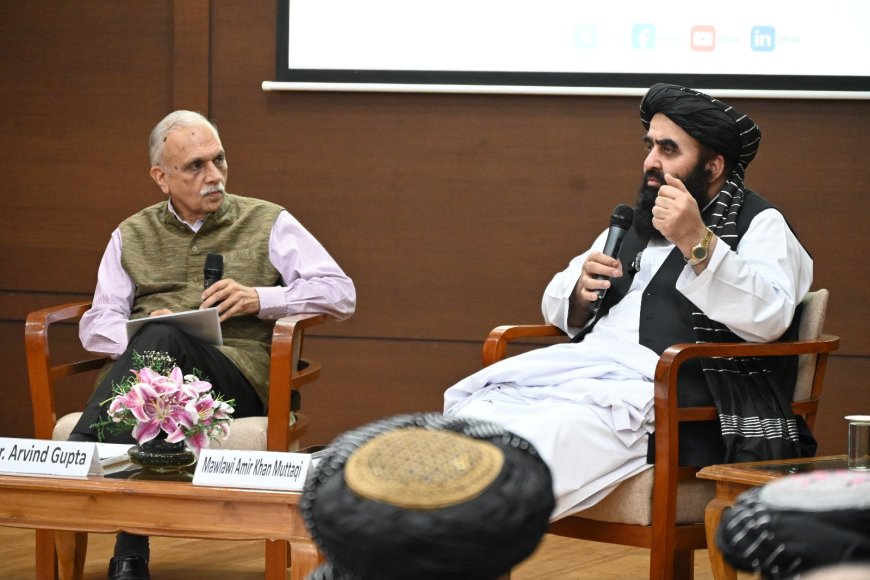
Gender Controversy Sparks Outrage
The visit, however, was not without backlash. A press conference at the Afghan Embassy on October 12 barred women journalists from attending, replicating the Taliban’s gender policies in Afghanistan. The move provoked widespread criticism from Indian media and civil society. In a dramatic moment, female reporters stormed a follow-up briefing to confront Taliban officials. The Ministry of External Affairs distanced itself from the incident, but the episode exposed a glaring contradiction. India, which has championed women’s rights in Afghanistan on global platforms—particularly during the G20—appeared to be accommodating a regime that enforces systemic gender apartheid.
Concrete Outcomes and Diplomatic Gains
Despite controversy, the visit produced tangible results. On October 15, Muttaqi told the media that “India-Afghanistan relations have a bright future,” and announced plans to send Afghan diplomats to Delhi. In a major policy move, India agreed to upgrade its “technical mission” in Kabul into a fully operational embassy, closed since August 2021. This reaffirmed India’s long-term intent to re-establish on-ground presence, monitor security threats, coordinate humanitarian aid, and counter Pakistan’s influence in Afghanistan. This shift from limited engagement to institutional return marks a new phase in India’s Afghan policy.
A Pragmatic Thaw in a Complicated History
India’s relationship with the Taliban has been historically tense. The memories of the 1999 IC-814 hijacking, the 2008 Kabul embassy bombing, and the Taliban’s alignment with Pakistan’s intelligence establishment have long deterred India from engaging them. Yet, geopolitical realities have changed. India’s “engagement without recognition” policy—first tested in 2024 when Foreign Secretary Misri met Muttaqi in Dubai—has now evolved into a structured dialogue. This approach allows India to de-hyphenate Afghanistan from Pakistan, pursue independent ties with Kabul, and secure its strategic interests. It also provides India access to intelligence on terrorist groups like LeT and JeM.

Economic Revival and Connectivity
Before 2021, India was one of Afghanistan’s largest development partners, investing over $3 billion in roads, dams, power projects, schools, hospitals, and the Afghan Parliament building. Muttaqi’s visit revived discussions on regional connectivity, including the Chabahar Port route, which bypasses Pakistan and could significantly boost Afghan exports and Indian access to Central Asia.
Soft Power as Strategy
Muttaqi’s visit to Deoband was a masterstroke of soft power by India. By hosting the Taliban at a respected Islamic institution within India’s secular framework, New Delhi projected confidence in its pluralism while subtly positioning itself as a moderating influence.
Why the World Watched
This visit has global implications. It challenges Pakistan’s strategic depth doctrine, complicates Af-Pak border tensions, and introduces India as a key player in Afghan stability. It also intersects with great-power rivalries, as India’s approach contrasts with Western isolation strategies and aligns more closely with Russia, China, and Iran in multilateral formats.
What's Your Reaction?













